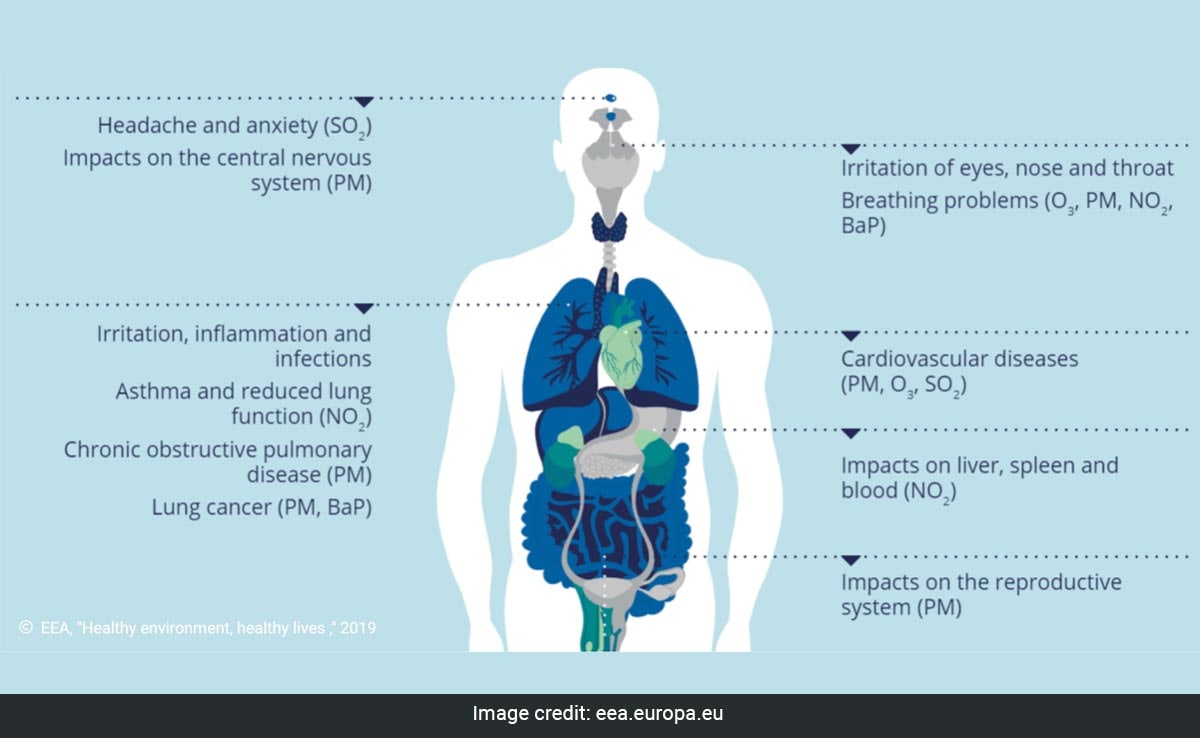
It's the start of the winter season and Delhi is again witnessing a sharp dip in air quality. The overall Air Quality Index (AQI) stood at 346, according to the Central Pollution Control Board (CPCB). Experts say there are many contributing factors for Delhi pollution, such as vehicular emissions, smoke from stubble burning and low wind speed. The crisis situation has caused the central government to implement more stringent curbs under the Graded Response Action Plan or GRAP to limit the pollution.
Several studies have highlighted the ill effects of air pollution, which is the single largest environmental health risk in Europe and a major cause of premature death and disease.
According to European Environment Agency (EEA), both short- and long-term exposure to air pollution can lead to a wide range of diseases, including stroke, chronic obstructive pulmonary disease, trachea, bronchus and lung cancers, aggravated asthma and lower respiratory infections.
A global survey carried out a few years ago found that chronic exposure can affect every organ in the body, complicating and make existing health conditions worse.
How air pollution impacts our internal organs

Central nervous system: Neurotoxicants produced by foul air can have adverse effects on the nervous system during development, including cell growth and migration. The impact is highest in the developing brain of infants and children. They can suffer from mental and cognitive developmental disorders, attention deficit hyperactivity disorder, and autism spectrum disorder. EEA said headache and anxiety is also one of the impacts of neurotoxicants produced by air pollution.
Breathing problems: This is one of the most common impact of drop in AQI. Polluted air can cause difficulty breathing, flare-ups of allergy or asthma, and other lung problems. Whether outdoors or indoors, the effects of air pollution are most obvious for those who already have difficulty breathing. This mostly happens because of particulates, the fine and coarse particles that are released when fuel is burned. They can come from things like cars, power plants, and wildfires.
Long-term exposure to air pollution can raise the risk of other diseases, including heart disease and cancer. The International Agency for Research on Cancer has classified air pollution, in particular PM2.5, as a leading cause of cancer.
A recent study in India found a link between exposure to air pollution and type 2 diabetes. Research conducted in Delhi and the southern city of Chennai found that inhaling air with high amounts of PM2.5 particles led to high blood sugar levels and increased type 2 diabetes incidence.
Children and adolescents are particularly vulnerable because their bodies, organs and immune systems are still developing. Air pollution damages health during childhood and increases the risk of diseases later in life.
Track Latest News Live on NDTV.com and get news updates from India and around the world

